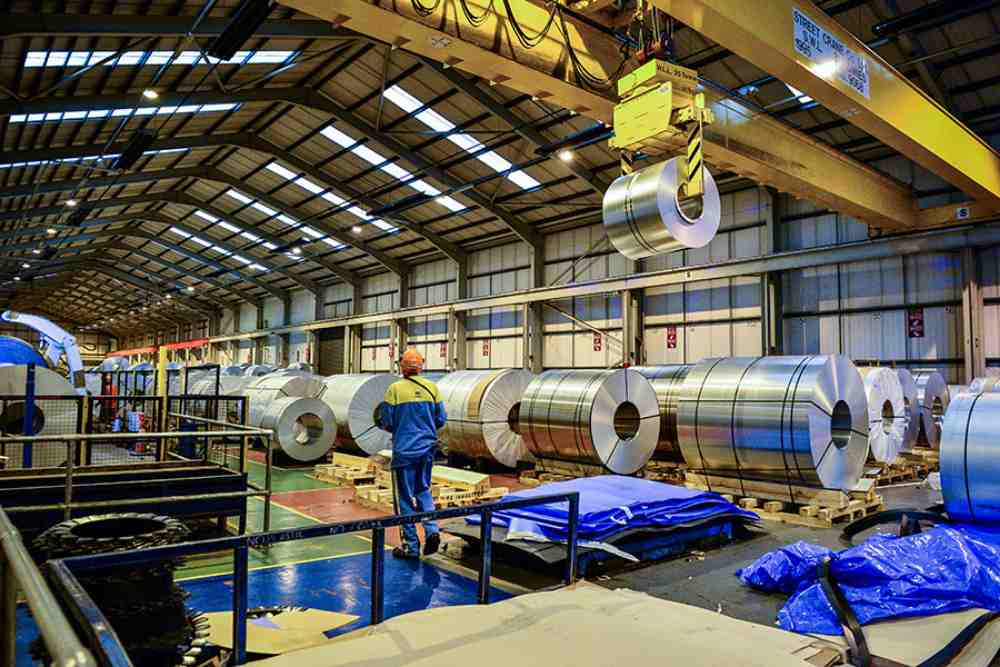The United Kingdom has unveiled a groundbreaking joint investment package with Tata Steel, amounting to £1.25 billion (approximately $1.55 billion). The central objective of this initiative is to secure the future of Port Talbot operations in Wales, the largest steelworks in the nation. This financial infusion provides a much-needed lifeline for a business that has been grappling with structural weaknesses.

A Leap Towards Greener Steel Production
The heart of this investment package lies in its commitment to greener steelmaking. To achieve this, the outdated coal-powered blast furnaces at the Welsh facility, which are nearing the end of their useful life, will be replaced by a state-of-the-art 3 million tonne electric arc furnace (EAF). This transition is expected to reduce the UK’s overall carbon emissions by approximately 1.5 percent.
Government Grant and Tata’s Contribution
Out of the total £1.25 billion, a government grant of £500 million ($621 million) is allocated to this transformational project. It is worth noting that this grant is one of the largest support packages ever provided by the UK government. However, its disbursement is contingent on regulatory approvals and consultation processes. Tata Steel will contribute approximately £700 million, primarily through internal equity.
Vision for the Future
N Chandrasekaran, Chairman of Tata Sons, expressed his optimism about this collaboration with the UK government, emphasizing its significance for the steel industry and the broader industrial value chain in the UK. He stated that this investment would not only preserve numerous jobs but also facilitate the development of a green technology-based industrial ecosystem in South Wales.

Prime Minister’s Assurance
UK Prime Minister Rishi Sunak underscored that this investment would modernize the UK steel industry, ensuring its sustainability. Additionally, it would safeguard thousands of skilled jobs and contribute to economic growth in the long run.
Concerns and Commitment
While the announcement has generated hope, it has also raised concerns about potential job redundancies, affecting up to 3,000 positions in the UK. Tata Steel UK, which includes the Port Talbot facility, employs over 8,000 individuals. However, the UK government believes that this proposal has the potential to secure more than 5,000 jobs nationwide, with an additional 12,500 jobs supported in the upstream supply chain.
Path Forward
T V Narendran, CEO and Managing Director of Tata Steel, emphasized the importance of meaningful consultations with unions regarding the proposed transition pathway. He acknowledged the challenges faced by Tata Steel UK, particularly with aging facilities, and highlighted that this substantial investment offers an optimal outcome for all stakeholders.
A Decade-Long Struggle
Port Talbot has been a source of struggle for Tata Steel since its acquisition of Corus (now Tata Steel Europe) in 2007 for £6.2 billion. The management had previously warned that without government support for decarbonization, site closures might become a stark reality.
An Expanded Partnership
This significant investment comes on the heels of the Tata Group’s decision to establish an electric vehicle battery plant in the UK to supply Jaguar Land Rover factories. The ambitious plan, announced in July, involves a £4 billion investment, with the British government providing undisclosed financial support.

A Structural Transition
Koushik Chatterjee, Executive Director and CFO of Tata Steel, emphasized that this initiative signifies a structural transition aimed at securing a sustainable and profitable future for Tata Steel UK. As part of this transformation, Tata Steel will restructure its consolidated balance sheet, which will include the non-cash impairment of legacy investments, including historical funding and support for past losses incurred by Tata Steel UK.
